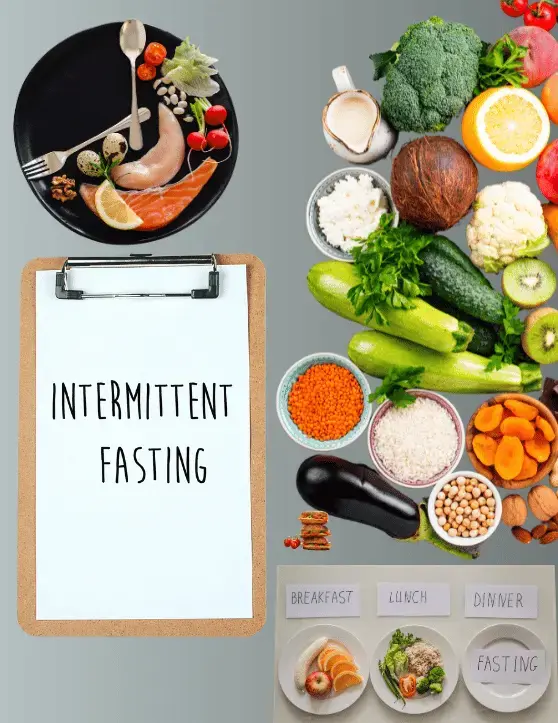Successful Mastering Intermittent Fasting and Semaglutide for weight Loss
Are you on a journey to shed those extra pounds and reclaim your health? With so many weight loss methods out there, finding the right one can feel overwhelming. But what if there was a way to combine two powerful strategies: intermittent fasting and semaglutide that not only support your weight loss goals but also improve your overall well-being?
Intermittent Fasting and Semaglutide for Weight Loss, we’ll explore how these two approaches can work together to help you achieve lasting results. Intermittent fasting, a time-tested eating pattern, not only promotes fat-burning but also supports metabolic health. Meanwhile, semaglutide, a groundbreaking FDA (Food and Drug Administration)-approved medication, can enhance weight loss by regulating appetite and supporting healthy lifestyle changes.
Whether you’re new to these strategies or looking for a way to maximize your current plan, this guide will walk you through everything you need to know. From understanding how they work to practical tips for integrating them into your routine, we’ll cover it all step by step, in a way that’s simple, clear, and actionable.
Discover the effective transformative benefits of intermittent fasting and semaglutide for weight loss!
What is Semaglutide?

Semaglutide is a game-changer in the world of weight loss and metabolic health. Originally developed to manage type 2 diabetes, this FDA-approved medication has emerged as a highly effective tool for weight management. But what exactly is semaglutide, and why is it gaining so much attention?
At its core, semaglutide is a medication that mimics a naturally occurring hormone in your body called GLP-1 (glucagon-like peptide-1). This hormone plays a crucial role in regulating appetite, blood sugar levels, and digestion. By enhancing the effects of GLP-1, semaglutide helps you feel fuller longer, reduces cravings, and slows down the emptying of your stomach. These effects make it easier to stick to healthy eating habits and create the calorie deficit needed for weight loss.
Semaglutide is available under brand names like Ozempic and Wegovy, and it’s typically administered as a once-weekly injection. Don’t worry if needles make you nervous most people find the process simple and nearly painless with the right guidance.
Beyond its role in weight loss, semaglutide offers additional health benefits, like improving blood sugar control and reducing the risk of heart disease. It’s not a magic pill, but when combined with lifestyle changes such as intermittent fasting, a balanced diet, and regular exercise, it can be a powerful ally in achieving sustainable weight loss and better health.
If you’re curious about whether semaglutide is right for you, speak with a healthcare provider who can guide you based on your unique needs and goals. This medication isn’t just about losing weight—it’s about gaining confidence, energy, and a healthier future!
How Does Semaglutide Work?
Semaglutide works by mimicking the natural hormone GLP-1 (glucagon-like peptide-1) in your body, which plays a significant role in regulating blood sugar, appetite, and digestion. Here’s how it works its magic:
- Appetite Control
One of the key ways semaglutide helps with weight loss is by reducing your appetite. It signals your brain that you’re full, helping to curb those feelings of hunger that can lead to overeating. By naturally helping you feel satisfied with smaller portions, it makes sticking to a balanced diet much easier. - Slowing Down Digestion
Semaglutide slows down the rate at which your stomach empties, which means food stays in your stomach longer. This delay helps you feel fuller for a longer period, reducing the urge to snack or eat more than you need. - Improving Insulin Sensitivity
In addition to managing hunger, semaglutide also helps regulate blood sugar by enhancing insulin sensitivity. This means your body can more efficiently process the sugar from the food you eat, preventing spikes and crashes in blood sugar levels that can leave you feeling sluggish or craving more food. - Supporting Healthy Weight Loss
By working on appetite regulation and blood sugar control, semaglutide creates the perfect environment for sustainable weight loss. It helps you stay in a calorie deficit without the constant battle against hunger and cravings, which makes it easier to maintain a healthier lifestyle over time.
When combined with other healthy habits, like intermittent fasting, semaglutide becomes even more powerful, helping you achieve your weight loss goals faster and more effectively. It’s not a quick fix, it's a supportive tool that works with your body to help you create lasting change.
Why Use Semaglutide for Weight Loss?
Semaglutide has quickly become a sought-after option for those looking to lose weight and improve their overall health. But why exactly is it so effective? Let’s break it down.
Helps Control Hunger and Cravings
One of the biggest challenges in any weight loss journey is controlling your appetite. Semaglutide works by signaling your brain that you’re full, helping to curb those intense hunger pangs and cravings that often lead to overeating. It makes it easier to stick to healthy eating habits and maintain a calorie deficit, which is key to weight loss.
Supports Sustainable Weight Loss
Unlike quick-fix solutions, semaglutide promotes gradual, sustainable weight loss. It doesn’t just help you shed pounds quickly, it helps you maintain those losses over time by supporting healthier eating habits and improving overall body metabolism. You’ll likely see a steady reduction in body weight, making the journey more manageable and long-lasting.
Improves Blood Sugar Levels
Semaglutide is originally used for managing type 2 diabetes because it helps regulate blood sugar levels. This benefit is important for weight loss because stable blood sugar levels reduce cravings, energy dips, and the tendency to snack on high-sugar foods. This not only aids in weight loss but also promotes better overall health.
Enhances Fat Burning
Research shows that semaglutide helps target fat loss rather than just weight loss. This is crucial because it helps preserve muscle mass while reducing body fat, leading to a healthier body composition in the long run.
Proven Results
Clinical studies show that semaglutide can help people lose a significant amount of weight, often around 15% or more of their body weight. This kind of result is hard to achieve with diet and exercise alone, especially if you’ve been struggling with stubborn weight for years.
Improves Quality of Life
Beyond just the physical changes, many people experience improvements in their overall well-being. Weight loss with semaglutide has been linked to better sleep, more energy, and reduced risk for chronic conditions like heart disease and hypertension.
What is Intermittent Fasting (IF)?

Intermittent Fasting (IF) is an eating pattern that alternates between periods of eating and fasting. It’s not about what you eat, but rather when you eat. Intermittent fasting has become a popular approach to weight loss and health improvement because it’s simple to follow and can lead to significant results, both for weight loss and overall well-being.
There are several variations of intermittent fasting, but the most common methods include:
- 16/8 Method (Leangains Protocol)
This is one of the most popular methods, where you fast for 16 hours and eat during an 8-hour window. For example, you might skip breakfast and eat between 12 PM and 8 PM, allowing your body to burn fat and regulate insulin during the fasting period. - 5:2 Diet
With this method, you eat normally for five days of the week and restrict calorie intake (around 500-600 calories) on two non-consecutive days. This gives your body a chance to burn fat while still enjoying regular meals most of the time. - Eat-Stop-Eat
This method involves fasting for 24 hours once or twice a week. You would go from one meal to the next without eating for a full 24 hours, such as from dinner one day to dinner the next day. While this can be more challenging, it can yield impressive results for those who stick with it. - Alternate-Day Fasting
As the name suggests, you fast every other day. On fasting days, you might consume very few calories (around 500-600), and on non-fasting days, you eat normally.
How Does Intermittent Fasting Work?
Intermittent fasting works by giving your body more time to burn fat. When you fast, your body switches from burning glucose (from the food you eat) to burning stored fat for energy. This process helps you reduce body fat while maintaining lean muscle mass. It also helps lower insulin levels, which plays a key role in fat storage.
Why Use Intermittent Fasting for Weight Loss?
Intermittent fasting is effective for weight loss because it helps you eat fewer meals without feeling deprived. It’s a natural way to reduce calorie intake, increase fat burning, and regulate hunger. Plus, intermittent fasting has numerous other health benefits, including improved metabolism, better blood sugar control, and increased energy.
Whether you’re looking to lose weight, improve your metabolism, or simply feel better, intermittent fasting is a flexible and sustainable approach that can fit into nearly any lifestyle. It’s all about working with your body’s natural rhythms to unlock your best health!
Overview of Intermittent Fasting and Semaglutide for Weight Loss
| Aspect | Intermittent Fasting (IF) | Semaglutide for Weight Loss |
| How It Works | Restricts calorie intake during fasting periods, promoting fat-burning | Reduces appetite, leading to lower calorie consumption. |
| Type | Lifestyle intervention (not a medication) | Prescription medication (injectable). |
| Duration | Flexible, depending on the fasting schedule (e.g., 16:8, 5:2). | Typically taken weekly over several months. |
| Appetite Control | Appetite may decrease naturally due to fasting periods. | Directly suppresses appetite by influencing hunger hormones |
| Effectiveness | Proven effective for weight loss with proper adherence and a balanced diet. | Effective for significant weight loss, especially for those with obesity or overweight. |
| Side Effects | It may cause hunger, fatigue, irritability, and headaches, especially when starting. | Common side effects include nausea, vomiting, diarrhea, and constipation. |
| Safety | Generally safe for healthy individuals when done properly. | Safe when prescribed by a healthcare professional, but may not be suitable for everyone. |
| Sustainability | Requires lifestyle commitment and discipline; easier to maintain for some. | Requires ongoing medical supervision and adherence to injection schedule. |
| Medical Supervision | Not required, though consulting with a doctor is recommended for individuals with medical conditions. | Required, as it is a prescription medication that needs monitoring. |
| Ideal Candidates | Individuals who prefer flexibility in eating patterns. | Individuals struggling with obesity or those who have been successful with other weight loss methods. |
| Long-Term Results | Sustainable long-term if adhered to with a healthy lifestyle. | Can result in significant weight loss but requires continued use and lifestyle changes to maintain results. |
| Cost | Low to no cost (depends on food choices). | Can be expensive, especially if not covered by insurance. |
| Other Benefits | Potential benefits include improved metabolic health, insulin sensitivity, and mental clarity. | May improve blood sugar control and cardiovascular health in addition to weight loss. |
Combining Intermittent Fasting with Semaglutide: Does it Work?

If you’ve been exploring different ways to enhance your weight loss journey, you may be wondering whether combining intermittent fasting (IF) with semaglutide can help you achieve even greater results. The good news? Yes, combining these two powerful strategies can work wonders for many people. Let’s break down how each of them complements the other and why this combination could be a game-changer.
1. Enhanced Appetite Control
Intermittent fasting and semaglutide both target one of the biggest challenges in weight loss—controlling hunger. Intermittent fasting limits the time you have to eat, which naturally reduces your calorie intake. Meanwhile, semaglutide works by helping you feel fuller for longer, reducing cravings, and making it easier to stick to your eating window without feeling the urge to overeat. Together, they create a double layer of appetite control, making it easier to adhere to a calorie deficit and avoid mindless snacking.
2. More Efficient Fat Burning
When you fast, your body switches from using glucose as its primary fuel source to burning fat for energy. Semaglutide also helps by improving insulin sensitivity and promoting fat loss. Combining the two can accelerate fat-burning processes, especially during the fasting period, leading to more effective and faster weight loss results. The synergistic effect of fasting and semaglutide may help you burn fat without losing muscle mass, giving you a leaner, healthier body composition.
3. Sustained Energy and Better Metabolism
Intermittent fasting gives your digestive system a break, and during this fasting window, your body ramps up fat metabolism. Semaglutide, in turn, helps stabilize blood sugar levels, preventing those energy crashes that often come with restrictive diets. Together, they can help maintain steady energy levels throughout the day, so you’re not tempted to grab unhealthy snacks or feel sluggish as you move through your weight loss journey.
4. Simplicity and Flexibility
Both intermittent fasting and semaglutide offer simplicity and flexibility. Intermittent fasting doesn’t require complex meal plans or calorie counting, and semaglutide works with your body to make weight loss easier, without the need for constant willpower battles. This combination gives you the freedom to integrate them into your routine without feeling overwhelmed or deprived.
5. Health Benefits Beyond Weight Loss
The benefits of both intermittent fasting and semaglutide go beyond weight loss. Intermittent fasting improves metabolic health, supports brain function, and can reduce inflammation, while semaglutide has been shown to lower the risk of heart disease and improve blood sugar levels. When combined, they offer a comprehensive approach to improving both physical and mental well-being.
Is This Combination Right for You?

- While combining intermittent fasting and semaglutide can offer significant benefits, it’s important to remember that everyone’s body responds differently. Before starting either approach, it’s always a good idea to consult with a healthcare provider who can help tailor a plan that fits your individual health needs and goals.
- If you're looking for an effective, sustainable way to lose weight and improve your overall health, combining intermittent fasting with semaglutide could be the perfect match. It’s a dynamic duo that works in harmony to create lasting change—helping you not just lose weight, but also feel better and more energized along the way.
Common Challenges and Solutions When Combining Intermittent Fasting and Semaglutide

Embarking on the journey of combining intermittent fasting (IF) with semaglutide for weight loss is an exciting and promising path, but like any new routine, it can come with a few bumps along the way. Don't worry, though I've got your back! Here’s a look at some common challenges you might face, along with practical solutions to help you stay on track and keep moving forward.
1. Hunger During Fasting Periods
Hunger can be a real challenge, especially when you're just starting with intermittent fasting. Fortunately, semaglutide helps to reduce hunger, but it might still sneak up on you during fasting hours.
Solution: Keep hydrated! Water, herbal teas, or even black coffee can help curb those hunger pangs. Sometimes, the body simply needs a bit of time to adjust to the new eating pattern. Start with shorter fasting windows if needed and gradually increase the time. Your body will get used to it, and those hunger signals will be more manageable over time.
2. Overeating During Eating Windows
When you're fasting, it’s easy to feel like you can “catch up” on all the calories you missed. This can lead to overeating during your eating window.
Solution: Plan your meals ahead of time and focus on nutrient-dense, whole foods that satisfy you without leading to overeating. Semaglutide helps with appetite control, but it’s still a good idea to practice mindful eating, slow down, savor each bite, and listen to your body when it says you’ve had enough.
3. Energy Slumps or Fatigue
If you're not used to fasting, you might experience some energy dips, especially as your body adjusts to burning fat for fuel. Semaglutide is great for regulating blood sugar, but you might still face moments of tiredness.
Solution: Make sure you're eating balanced, nutrient-rich meals during your eating window. Foods that are rich in healthy fats, protein, and fiber will help keep your energy levels steady. If you feel sluggish, try taking a short walk or doing light activity to boost your energy. And remember, it’s okay to rest too, you're making big changes, and your body deserves some TLC.
4. Difficulty Sticking to the Fasting Schedule
Let’s face it, sticking to a fasting schedule can be tricky, life gets busy, and sometimes you may want to eat outside of your planned window.
Solution: Be kind to yourself! Start slowly with shorter fasting windows (12 hours fasting, 12 hours eating) and gradually build up. Flexibility is key. If you have a slip-up, don’t beat yourself up—just get back on track the next day. Consistency is important, but it’s the long-term habit that will make a difference.
5. Digestive Discomfort
Some people experience mild digestive issues like bloating or nausea when starting semaglutide or intermittent fasting.
Solution: Take it slow! Start with a lower dose of semaglutide to allow your body to adjust. For fasting, try shorter periods or break your fast with lighter meals to avoid overwhelming your digestive system. Over time, your body will adapt, and these issues should decrease.
6. Dehydration
Both fasting and semaglutide can lead to dehydration if you're not mindful of your water intake. It’s an easy thing to overlook, but staying hydrated is essential.
Solution: Drink plenty of water throughout the day, especially during fasting periods. You can also add electrolytes to your water, like a pinch of salt or a splash of coconut water, to help keep your hydration levels balanced.
7. Social or Lifestyle Challenges
Life happens, and social events or travel can throw off your fasting schedule. Whether it's a dinner with friends or a family gathering, it can feel challenging to stay on track.
Solution: Plan ahead! When you know you'll be in a social situation, try to adjust your eating window accordingly. You can also bring your meals or snacks to stay aligned with your routine. And if you find yourself having to adjust at the moment, it’s okay. Just get back to your plan as soon as you can—it’s about progress, not perfection!
Conclusion
Remember, The Intermittent Fasting and Semaglutide for Weight Loss journey to better health is not always a straight path. There will be moments of challenge, but each one is an opportunity to learn and grow. Stay patient with yourself, celebrate the small wins, and know that you have everything you need to succeed. With semaglutide and intermittent fasting, you’re taking powerful steps toward your goals and I’m here to support you every step of the way!
Reference
https://pmc.ncbi.nlm.nih.gov/articles/PMC9272494
https://www.drugs.com/semaglutide.html
https://www.nejm.org/doi/full/10.1056/NEJMoa2032183
FAQs
Yes, but combining it with intermittent fasting may enhance your weight loss results.
The 16:8 method is a popular choice due to its simplicity and flexibility.
Avoid high-fat and high-sugar foods to reduce gastrointestinal side effects.
Many users report noticeable changes within the first month when combining intermittent fasting and Semaglutide.
Yes, but listen to your body and stay hydrated.








